
Kod: 02526057
Memoir Of The Warsaw Uprising
Autor Miron Bialoszewski Madeline Levine
A Memoir of the Warsaw Uprising is both a work of memory and a work about memory. Miron Bialoszewski, the great avant-garde Polish poet, memorializes the doomed uprising of the Polish population against their Nazi masters, which b ... więcej
- Język:
 Angielski
Angielski - Oprawa: Miękka
- Liczba stron: 256
Wydawca: The New York Review of Books, Inc, 2015
- Więcej informacji o książce

87.60 zł
Zwykle: 87.63 zł
Oszczędzasz 0.03 zł
Dostępność:
50 % szansa Otrzymaliśmy informację, że książka może być ponownie dostępna. Na podstawie państwa zamówienia, postaramy się książkę sprowadzić w terminie do 6 tygodni. Gwarancja pełnego zwrotu pieniędzy, jeśli książka nie zostanie zabezpieczona.
Otrzymaliśmy informację, że książka może być ponownie dostępna. Na podstawie państwa zamówienia, postaramy się książkę sprowadzić w terminie do 6 tygodni. Gwarancja pełnego zwrotu pieniędzy, jeśli książka nie zostanie zabezpieczona.Przeszukamy cały świat
Zobacz książki o podobnej tematyce
-

Berserk Deluxe Volume 1
210.79 zł -2 % -

One Piece Box Set 2: Skypeia and Water Seven
587.99 zł -26 % -

Never Finished
127.29 zł -
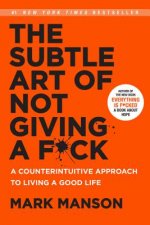
The Subtle Art of Not Giving a F*ck
88.30 zł -23 % -

HWPO
76.87 zł -14 % -

Food Wars!: Shokugeki no Soma, Vol. 1
45.40 zł -5 % -

Interaktivní angličtina pro předškoláky a malé školáky
37.28 zł -27 % -

The Hobbit & The Lord of the Rings, 4 Vols.
154.76 zł -6 % -

Magnum Contact Sheets
184.13 zł -23 % -

Alphonse Mucha
115.67 zł -23 % -

Harry Potter: Collectible Quidditch Set
92.61 zł -20 % -

RYA VHF Handbook
90.01 zł -15 % -
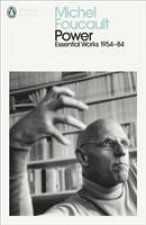
Power
60.84 zł -23 % -

Useless Magic
85.70 zł -14 % -
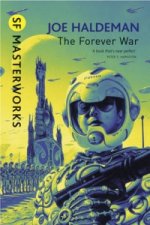
Forever War
37.58 zł -26 % -

China: The Cookbook
148.24 zł -15 % -

Formula One Record Book (2023)
197.16 zł -5 % -

Otaku in 10,000 BC, Volume 1
85.09 zł -4 % -

Ikigai
90.91 zł -14 % -

The Complete Book of the Flower Fairies
79.08 zł -23 % -

English in Mind Level 3 Workbook
55.02 zł -2 %
Bon podarunkowy: Radość gwarantowana
- Podaruj bon o dowolnej wartości, a my się zajmiemy resztą.
- Bon podarunkowy dotyczy całej naszej oferty.
- Możesz wydrukować elektroniczny bon z e-maila a następnie przekazać go obdarowanemu.
- Ważność bonu wynosi 12 miesięcy od daty wystawienia.
Powiadomienie o dostępności
Wpisz swój adres e-mail, aby otrzymać od nas powiadomienie,
gdy książka będzie dostępna. Proste, prawda?
Więcej informacji o Memoir Of The Warsaw Uprising
Za ten zakup dostaniesz 51 punkty
 Opis
Opis
A Memoir of the Warsaw Uprising is both a work of memory and a work about memory. Miron Bialoszewski, the great avant-garde Polish poet, memorializes the doomed uprising of the Polish population against their Nazi masters, which began on August 1, 1944, and was eventually abandoned on October 2, 1944, with the physical destruction of Warsaw, street by street and house by house, and the slaughter of 200,000 civilians. Yet Bialoszewski begins his memoir not with an invocation of the great historical events about to unfold but with a simple observation: "Tuesday, August 1, 1944, was cloudy, humid, not too warm...and I remember that there were many trolleys, cars, and people and that right after I reached the corner of Zelazna Street, I realized what day it was (the first of August) and I thought to myself, more or less in these words: 'August 1 is Sunflower Day.' " Bialoszewski concentrates on recalling the things he saw, felt, smelled, and heard. Each object is precious. Each possesses its own integrity, which the violence of the Nazis will destroy. In reclaiming these objects, Bialoszewski combats the inner evil of the time he recounts, the thinking of those for whom the individual is meaningless and the moment is a fraud. In dwelling with loving concern on the cobblestones, glass jars, and the casual words people spoke in passing, Bialoszewski sets himself against those for whom history justifies all actions and violence is a substitute for truth. Bialoszewski rescues memory from history. He rescues the moment from the epic sweep of the thousand-year Reich. He observes "the glaring identity of 'now.' " He tells us: "That is why I am writing about this. Because it is all intermeshed. Everything. My neighborhood too. Leszno, Chlodna, and Muranow. Because the majority of my churches were there. Then the Jews. And Kochanowski. And that woman near the pillars." In reclaiming the memory of the anonymous "woman near the pillars," Bialoszewski reaffirms the life-giving power of the imagination, which all the force of the inhuman Nazi machine could not-and cannot-obliterate.
 Szczegóły książki
Szczegóły książki
Kategoria Książki po angielsku Humanities History Military history
87.60 zł
- Pełny tytuł: Memoir Of The Warsaw Uprising
- Autor: Miron Bialoszewski Madeline Levine
- Język:
 Angielski
Angielski - Oprawa: Miękka
- Liczba stron: 256
- EAN: 9781590176658
- ISBN: 1590176650
- ID: 02526057
- Wydawca: The New York Review of Books, Inc
- Waga: 286 g
- Wymiary: 204 × 128 × 16 mm
- Data wydania: 27. October 2015
Ulubione w innej kategorii
-

With the Old Breed
45.40 zł -5 % -

SS Dirlewanger Brigade
72.96 zł -6 % -

Mediterranean Air War, 1940-1945
229.74 zł -23 % -

Wars of the Roses
81.28 zł -5 % -
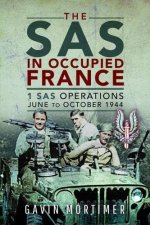
SAS in Occupied France
115.67 zł -23 % -
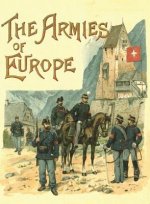
Armies of Europe Illustrated
122.28 zł -

Soviet Cruise Missile Submarines of the Cold War
85.19 zł -5 % -

Black Prince And The Sea Devils
177.61 zł -

Truth About The Wunderwaffe
216.81 zł -

Kill Anything That Moves
93.11 zł -5 % -
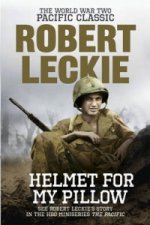
Helmet for my Pillow
60.84 zł -23 % -

Forgotten Highlander
60.84 zł -23 % -

TM 9-803 Willys-Overland MB and Ford Model GPW Jeep Technical Manual
92.91 zł -5 % -

With the Old Breed
70.06 zł -23 % -

Sleepwalkers
87.50 zł -14 % -

Panzerkampfwagen Tiger Ausf.B
105.74 zł -13 % -

D-Day
47.10 zł -23 % -

War that Ended Peace
46.80 zł -14 % -
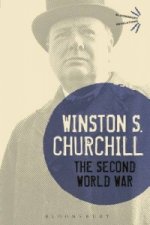
Second World War
133.91 zł -

Band Of Brothers
43.19 zł -15 % -

American Sniper
51.61 zł -23 % -

Battles Map by Map
136.82 zł -14 % -

Brothers in Battle, Best of Friends
77.17 zł -5 % -

Eastern Approaches
60.84 zł -23 % -

Citizen Soldiers
60.84 zł -23 % -

Fate is the Hunter
51.61 zł -23 % -

Shattered Sword
144.63 zł -5 % -

Panzerjager on the Battlefield
120.08 zł -23 % -

Fairbairn-Sykes Commando Dagger
74.47 zł -23 % -

Templars
57.43 zł -15 % -

Bravo Two Zero
52.11 zł -15 % -

Us Forces in Vietnam 1968 - 1975
101.13 zł -4 % -

Military History Book
138.32 zł -23 % -

Lost Victories
101.83 zł -23 % -

The Second World War
78.58 zł -14 % -

Hirohito and the Making of Modern Japan
70.06 zł -23 % -

T-34 on the Battlefield. Volume 2
120.08 zł -23 % -

Reaper
85.19 zł -5 % -

RAF Battle of Britain Fighter Pilots' Kitbag
79.08 zł -23 % -

Art of War
52.11 zł -15 % -

Pacific Crucible
105.24 zł -4 % -

Soldaten - On Fighting, Killing and Dying
47.10 zł -23 % -

1914-1918
88.30 zł -23 % -
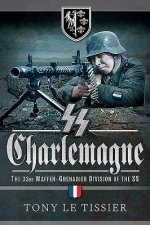
SS Charlemagne
60.84 zł -23 % -

Between Giants
79.08 zł -23 % -

German Panzers 1914-18
67.25 zł -15 % -
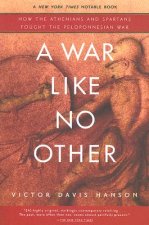
War Like No Other
81.08 zł -11 % -

Hommes et ouvrages de la ligne Maginot, Tome 4
220.22 zł -

Winter Uniforms of the German Army
358.04 zł -4 %
zadowolonych klientów
Od roku 2008 obsłużyliśmy wielu miłośników książek, ale dla nas każdy był tym wyjątkowym.
Copyright! ©2008-24 libristo.pl Wszelkie prawa zastrzeżonePrywatnieCookies


 21 milionów książek
21 milionów książek Dostawa 10.99 zł
Dostawa 10.99 zł (32) 444 93 66 (8-15.30h)
(32) 444 93 66 (8-15.30h)